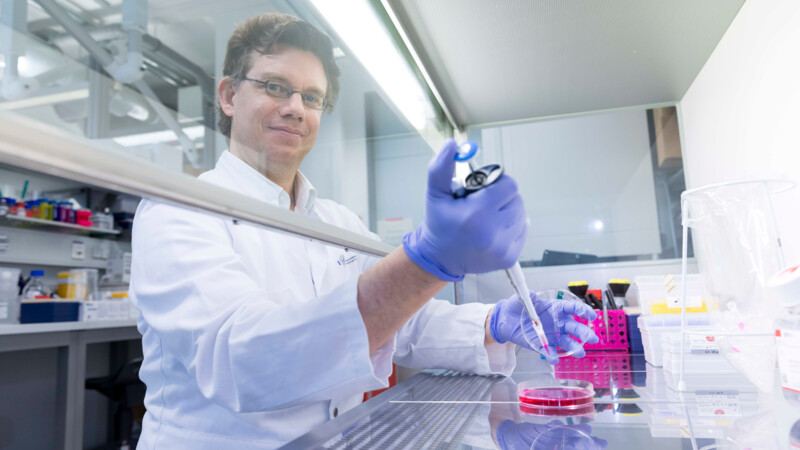Almost 60 per cent of the approximately 1,200 COVID-19 patients examined had higher liver values, the study found. Only a few of the participants had been previously diagnosed with liver disease. Thus, a Sars-Cov-2 infection can alter the liver's cells similar to hepatitis and long-term consequences cannot be ruled out: "These results once again underscore how diverse the potential damage mechanisms are with COVID-19. We fear an increasing incidence of COVID-19 secondary diseases in the liver and kidneys over the coming years and decades," said Prof. Dr. Tobias B. Huber, Director of UKE's Medical Clinic and Polyclinic.
mb/sb/pb
Researchers discover altered cells and secondary diseases in liver and kidneys
COVID-19 can have a direct impact on the liver and can trigger long-term secondary diseases, a study by researchers at the University Hospital Hamburg-Eppendorf (UKE), Freiburg, Heidelberg and in the United States has found. The results are available in the latest issue of the Nature Metabolism periodical (March 2022). The findings come after a UKE study in May 2020 concluded that the Sars Cov-2 pathogen is a multi-organ virus that afflicts many organs including the lungs.
Secondary diseases caused by COVID-19
Sources and further information
More
Similar articles

UKE Project: Recognising complications early using AI

UKE presents results of world's largest study on coronavirus

UKE study identifies Sars-Cov-2 pathogen as multi-organ virus
